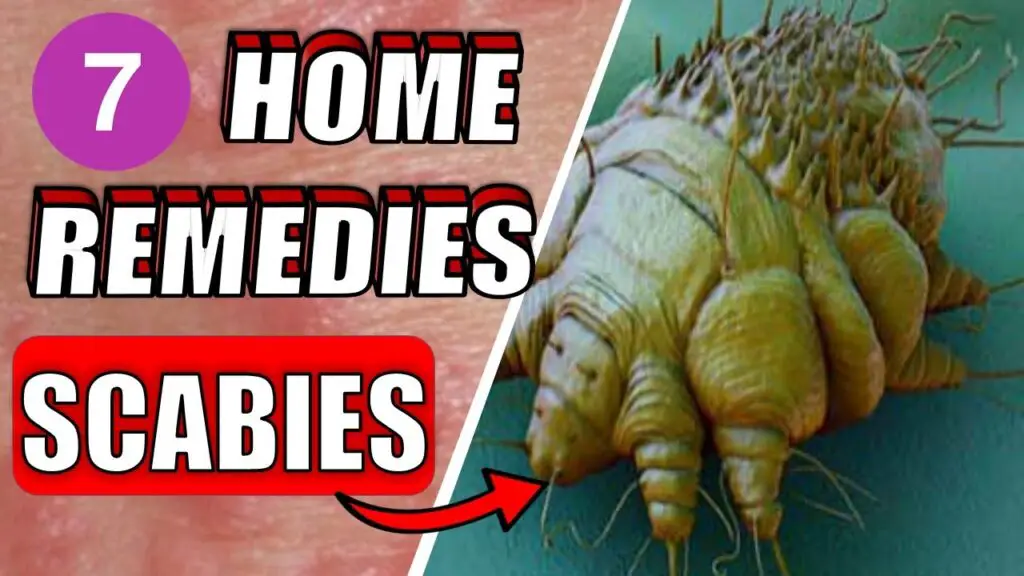Skin conditions are never pleasant, and scabies is no exception. Scabies is a distinctive and highly contagious skin disease that's caused by mites called Sarcoptes scabiei, and causes severe itching and a painful, inflamed rash. Some skin diseases will go away without effective treatment, but scabies is unfortunately not one of them. Left unchecked, the infection will only get worse.
While you will usually need to seek medical attention to treat scabies, you might also try various at-home remedies. Allergies or other reactions to medication could seem unappealing.
When you go to your doctor for scabies treatment, ask about DIY remedies you might try. It's worth noting that scabies is highly contagious, so it's important to start treating the infection as soon as possible. The good news is, scabies is completely treatable. The sooner you act, the sooner you can banish the problem.
A scabies rash is caused by mites that burrow into the skin and cause itchy, red bumps, which blister and spread over the skin. Once underneath the skin, the mites lay eggs. The eggs hatch and the cycle of itchiness and rash spreading begin all over again.
Sounds horrible, right? It gets worse. Scabies is very contagious. A person can get scabies via clothes, linen, sexual contact, and direct skin contact. That means that if one member of a family contracts the rash, the other family members are at a high risk of catching it, too. Scabies can be passed on in places with a lot of close physical contact. Daycare centers, schools, locker rooms, and other similar places can spread infections like scabies quickly and easily.
Perhaps you're feeling itchy just thinking about it.
If you have scabies, you will certainly notice. The symptoms of scabies include red, irritated, and blistered skin on the hands, face, genital area, or soles of the feet, and the area will be extremely itchy. The itching may get worse during the night. It's never a good idea to scratch itchy skin rashes, and scabies is no exception. Without treatment for scabies, the rash will spread and the itching will get worse, as the scabies mites multiply.
Scratching is almost impossible to resist. However, it can damage the skin and leave you susceptible to infection. It can also cause the rash to spread. In the end, scratching only provides temporary relief. While the scabies is untreated, the rash and subsequent discomfort will continue.
Beware of "treatments" that do nothing but provide relief from the itching. Remember, the itching and the rash are only a symptom of the root cause, which is the skin mites and their eggs. To completely rid yourself of the infection, you need to get rid of scabies mites - and their eggs. Some treatments kill the scabies mite problem, but not the eggs. This is no good as a long-term solution.
Even if your chosen treatment is working, be very careful about spreading the rash. Never share clothes, towels, or other personal items, and avoid sexual contact while treating scabies. You'll likely need to thoroughly clean your house, washing all the fabrics you can. If something can't be washed, seal it away in a plastic bag just in case. While this is time-consuming and a little annoying, it's necessary to keep yourself (and others) free of the scabies rash. You should keep this cleaning routine up during and after your treatment, just to be safe.
So, is it possible to combat crusted scabies at home, without any treatment at all? While some individuals have certainly seen impressive results, not all official tests have been completely conclusive. Results vary, and while you're trying out a new treatment, you should be careful about spreading the rash in the meantime. To be on the safe side, it's usually best to consult a health expert for medical advice before trying any new remedies.
If you're pregnant, breastfeeding, or have some other health condition, always talk to your doctor before trying to treat scabies at home. It's better to be safe than sorry, and with a contagious skin condition such as scabies, you should err on the side of caution.
Sometimes, despite our best efforts, we need a little extra help. You may want to check in with your doctor to make sure that your infestation is clearing up. Crusted scabies takes time to heal, maybe even several weeks. During this time, stay vigilant with your treatments and hygiene practices.
However, if the symptoms haven't begun to improve after several weeks, or are getting worse, it could be time to visit a health expert.
The first thing a doctor will do is to determine for sure whether your rash is scabies. Remember, scabies symptoms may be caused by something else. Once they have determined that your scabies really is just that, they may prescribe creams or even pills for more serious cases.
In conclusion, scabies is embarrassing, contagious, and uncomfortable health condition for any person - and entirely treatable. Whether you use natural remedies or you prefer to seek medical advice first, treating scabies can be very easy. If you're concerned at all, speak to a medical professional. And whatever you do, don't scratch it!

